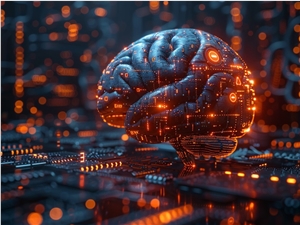Recently, the Computer Science and Artificial Intelligence Laboratory (CSAIL) at the Massachusetts Institute of Technology (MIT) and the Toyota Research Institute jointly launched a generative AI tool called "Steerable Scene Generation," aimed at enhancing robot learning capabilities. This new tool can create virtual training environments such as kitchens, living rooms, and restaurants for engineers to test how robots handle real-life tasks.

Image source note: The image is AI-generated, and the image licensing service is Midjourney
The platform was trained on over 44 million 3D room data and has a "steerable" feature, utilizing a strategy called "Monte Carlo Tree Search" (MCTS). MCTS can help AI models identify and select scene generation options to achieve specific goals, such as making the scene as realistic as possible or adding more objects in the scene. This strategy allows the system to continuously learn during the training process, creating increasingly complex scenes.
Nicholas Pfaff, a PhD student and researcher at CSAIL at MIT, said that this project is the first time MCTS has been applied to scene generation, viewing the scene generation task as a "sequence decision-making process." He said, "We build parts of the scene step by step, generating better or more ideal scenes over time. Therefore, the scenes generated by MCTS are more complex than those trained by diffusion models."
Industry experts point out that this work can address a major shortcoming in robot learning, which is the lack of high-quality training data that has long constrained technological development. Jeremy Binagia, a robotic applications scientist at Amazon, said, "Steerable Scene Generation provides a better approach... ensuring physical feasibility and making it possible to generate more interesting scenes."
The research team said that the advantage of their project is the ability to create diverse and usable scenes for engineers. Pfaff added, "With our guiding method, we can generate diverse, realistic, and task-consistent scenes to train our robots."
Although the system is still in the proof-of-concept stage, the team hopes to expand to more objects and environments in the future, ultimately using generative AI to create new assets rather than relying solely on fixed libraries. By expanding the diversity and realism of virtual training grounds, the team also hopes to establish a user community that generates a large amount of data, laying the foundation for robots to learn broader skills.
Key Points:
🌐 MIT and the Toyota Research Institute have launched a new AI tool to enhance robot virtual training capabilities.
🤖 The new tool uses Monte Carlo Tree Search technology to generate complex scenes, advancing robot learning.
📈 In the future, they hope to expand to more objects and environments and establish a user community to support robot skill training.










